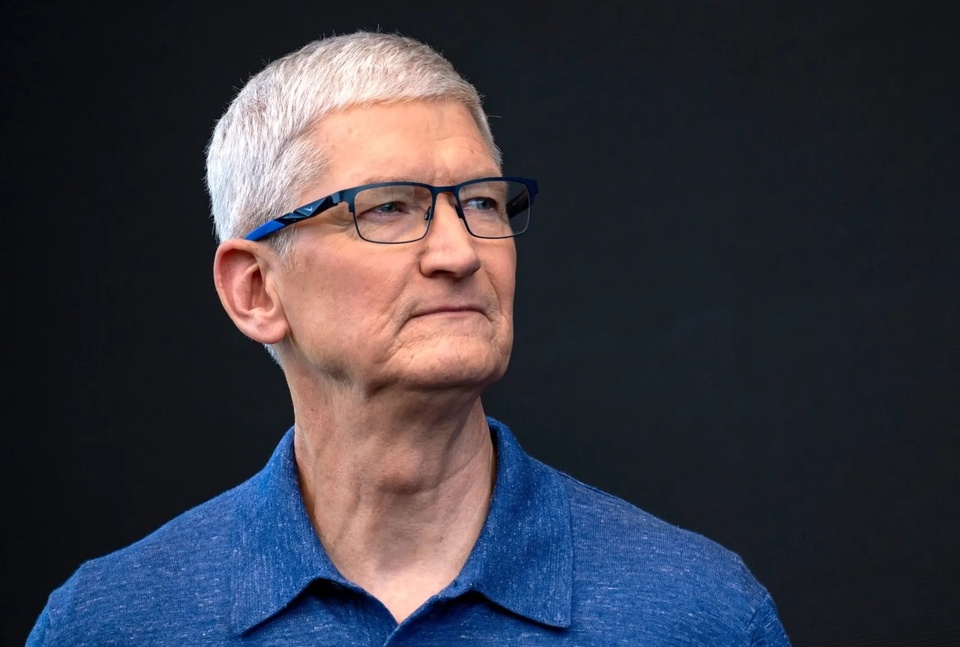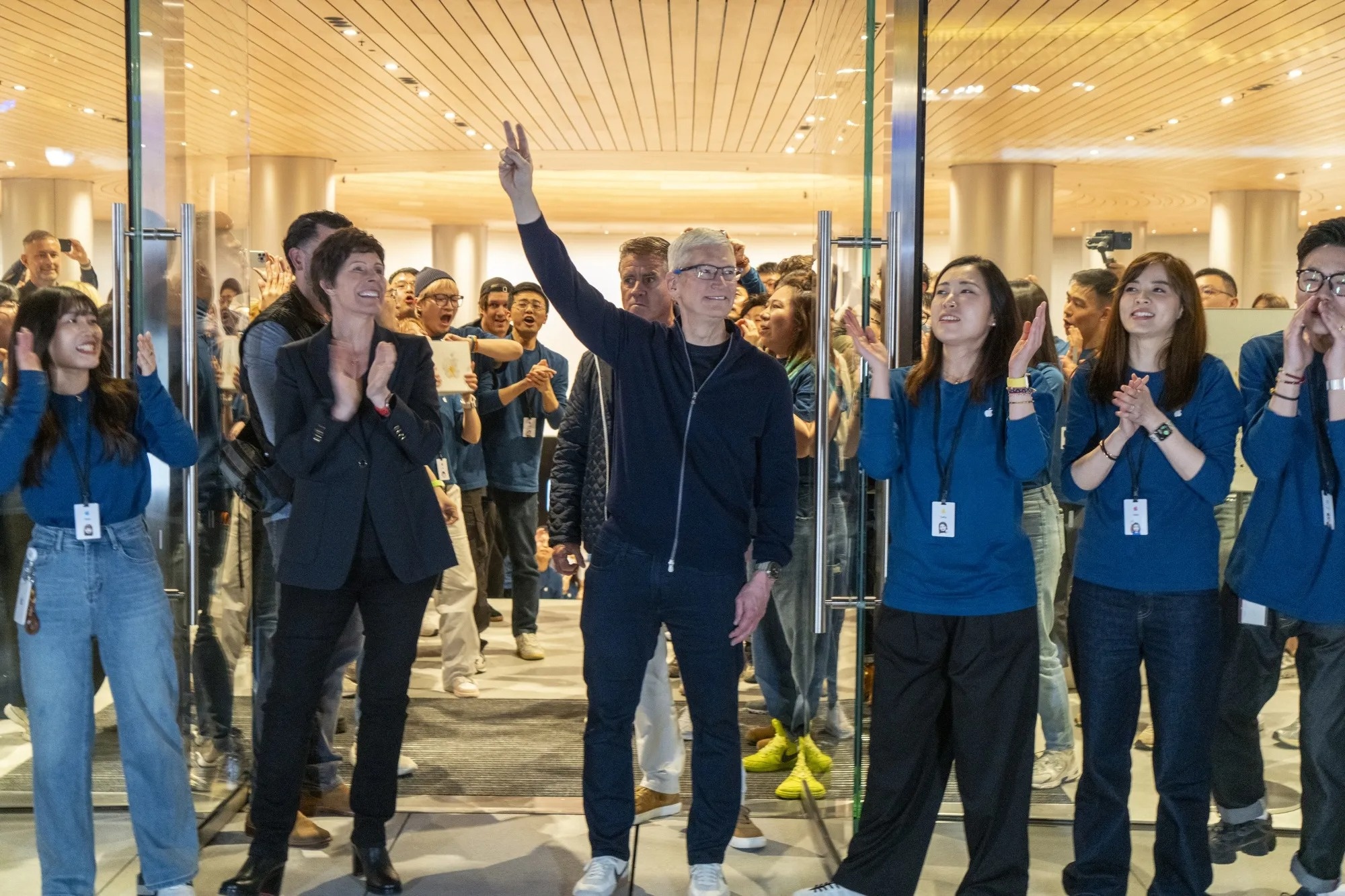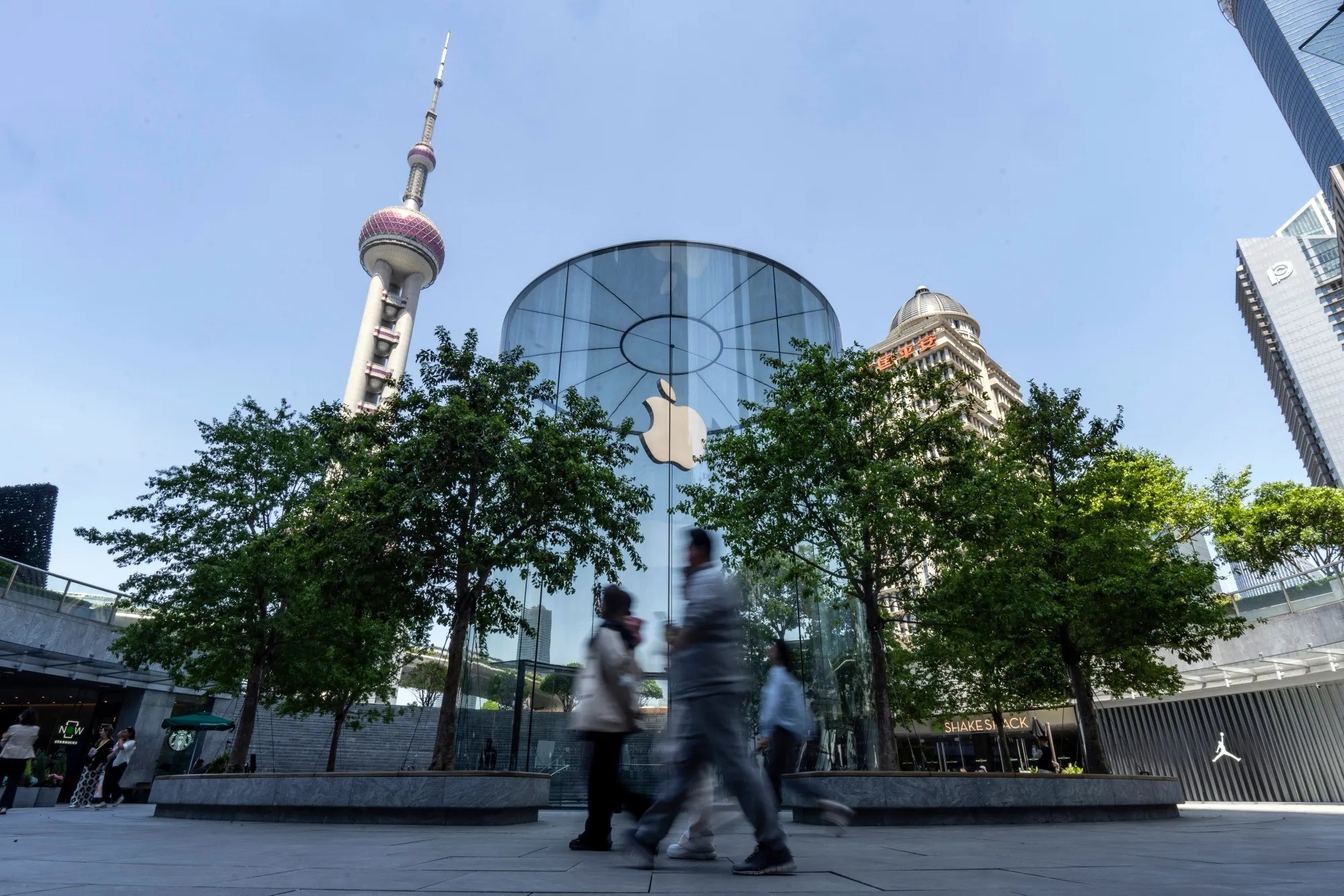Tim Cook, CEO of Apple. Photo: Bloomberg . |
Once known for its steady business performance and technological innovation, Apple is facing an unprecedented challenge.
In his Power On article on Bloomberg , analyst Mark Gurman lists a series of difficulties for Apple, from the uncertain situation of tariffs, the accusation of monopoly to the lack of momentum in the AI race. All create a bleak picture for the future of the Apple.
The biggest challenge ever
In fact, Apple has overcome difficulties many times under the reign of CEO Tim Cook. When the iPhone was threatened by large-screen smartphones (phablets) 10 years ago, Apple responded by increasing the size of the iPhone and succeeded.
At the same time, Apple settled its dispute with the FBI over unlocking the shooter’s iPhone. More recently, the company has weathered supply chain challenges caused by the Covid-19 pandemic and continued to ship and distribute products smoothly.
While it has solved many problems in the past, Gurman argues that current difficulties rarely come together.
“The threats put Cook and his team in their most challenging position ever,” the Bloomberg writer emphasized.
Overall, Apple is facing seven major issues at once. The first is dealing with the impact of tariffs, which could affect its business, product development, and pricing.
Next is the monopoly situation when the judge ordered Apple to stop receiving commissions on transactions through the App Store, in addition to the possibility of losing $20 billion/year from Google due to allegations of search engine monopoly.
Apple has also fallen behind its rivals in the artificial intelligence race. Its business is under scrutiny in several countries, while sales have stagnated in China due to competition from domestic rivals.
Tim Cook attends the opening of an Apple store in China. Photo: Bloomberg . |
Tariffs are seen as Apple’s biggest challenge in the near future. Cook said in a late April earnings call that tariffs could add about $900 million to its second-quarter expenses. An exact figure is not yet available because the Trump administration has not yet announced a separate tariff for smartphones.
That means Apple can’t yet figure out a long-term strategy for dealing with tariffs. For now, Cook said the “vast majority” of iPhones sold in the US will be imported from India, while AirPods, Apple Watches, iPads and Macs will be made in Vietnam.
With hundreds of millions of devices produced each year, tariffs could cost Apple billions of dollars. But the big question is how much of the cost the company will absorb. It may have to raise prices to pass some of the tax on to consumers.
“Asking customers to pay more for an already expensive device would force Apple to prove the value of the product.
“In recent years, the iPhone’s design innovations have slowed down and it lacks some features compared to its competitors. This disadvantage could become more apparent as prices rise. Major changes in the supply chain could also put pressure on the company, distracting it from its fall launch strategy,” Gurman said.
Out of breath before the opponent
The next issue concerns the App Store. In 2021, a California judge ruled that Apple must allow third-party developers to introduce third-party payment gateways to users, bypassing Apple’s system with a maximum transaction fee of 30%.
Apple, of course, doesn’t want to give up this revenue stream. The company introduced a new policy that requires developers to pay 27% of every transaction outside the App Store. In late April, Judge Yvonne Gonzalez Rogers ordered Apple to stop receiving this money.
For Apple’s services business, the court ruling could have a big impact. According to Gurman, the majority of App Store revenue comes from in-app transaction fees. If developers no longer use Apple’s system, that model could be upended.
Other governments are also moving closer to similar rulings. Japan’s Fair Trade Commission is preparing to impose new regulations that could fine Apple up to 30% of its revenue in the country, while South Korea has also hinted at a fine for alleged antitrust violations.
Apple IFC store in Shanghai (China). Photo: Bloomberg . |
Another threat is the potential loss of revenue from Google, which is fighting in court to protect its partnership with Apple. If Google fails to prevail against the Justice Department , Apple could lose $20 billion a year, or a fifth of its total services revenue.
That’s a lot of money for Apple, but there’s a bigger cloud hanging over it, Gurman says, and the company risks losing its leadership in technological innovation.
For years, Apple has been at the forefront of inventing technologies like multi-touch. Its in-house processors have helped drive new designs, while wireless technology has helped make the Apple Watch and AirPods successful.
But now, Apple may be losing ground to its rivals in fundamental areas like generative AI. Its AI tools are lagging behind Samsung, Google, and even Chinese models.
“If AI technology is not rapidly improved, Apple's devices will struggle, even causing the company to miss out on new product categories entirely.
The company has tried to turn things around by reorganizing its management, but it will take more time to assess whether Apple is on the right track,” Gurman added.
Source: https://znews.vn/kho-khan-bua-vay-apple-post1551372.html



























![[Photo] National Assembly Chairman Tran Thanh Man visits Vietnamese Heroic Mother Ta Thi Tran](https://vphoto.vietnam.vn/thumb/1200x675/vietnam/resource/IMAGE/2025/7/20/765c0bd057dd44ad83ab89fe0255b783)













































































Comment (0)